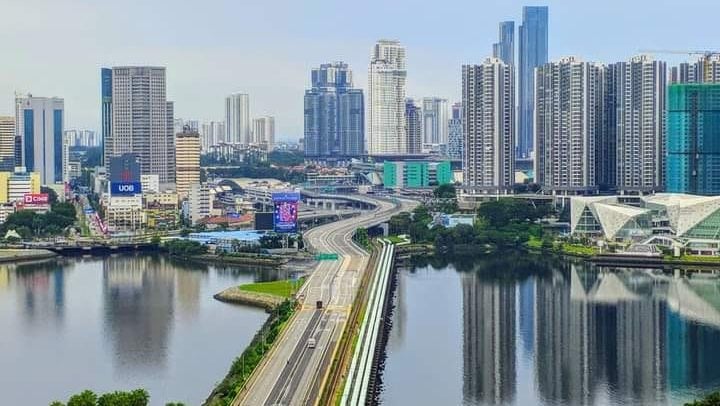SINGAPORE: The Johor-Singapore Special Economic Zone (JS-SEZ) is emerging as a beacon for Singaporean small and medium enterprises (SMEs). They would be beneficial for those who are looking to balance rising operational costs in Singapore with strategic growth opportunities. With the global trade environment unsettled by mounting US-China tensions, Singaporean businesses are increasingly looking across the Causeway for solutions.
A surge in interest despite global uncertainties
Malaysia’s High Commissioner to Singapore, Datuk Dr Azfar Mohamad Mustafar, confirmed that interest in the JS-SEZ remains strong, underscoring its appeal even amid international market turbulence. “As we know, the world is in a destructive mode now, with the US and China in competition. I think many investors are looking for a place to further invest without having any problems,” he told Bernama following the ASEAN Unity Drive 2025 flag-off event in Singapore.
His remarks highlight a growing trend: Singaporean SMEs, often seen as the lifeblood of the republic’s economy, are confronting significant pressures at home, including escalating rental and wage costs. “I think SMEs in Singapore increasingly realise that the republic has become a more expensive place to operate. So they need to find a place to continue being competitive,” Mr Azfar added.
Johor’s advantages: Proximity and cost savings
Johor’s geographical closeness to Singapore, combined with significantly lower operating costs, places the JS-SEZ in a prime position to attract these cost-conscious SMEs. Mr Azfar noted that his officers receive daily inquiries about the JS-SEZ, reflecting sustained and growing interest. “We at the High Commission in Singapore have been actively providing information to interested parties,” he shared, as quoted by Bernama.
This move is seen as a practical solution for businesses aiming to maintain operational continuity while reducing overheads. Malaysia’s ability to offer competitive business environments, without the baggage of major power rivalries, makes the JS-SEZ very appealing for these SMEs.
A platform designed for broad industrial growth
The JS-SEZ, officially established through a bilateral agreement signed in January, is tailored to bolster a wide range of economic sectors. Its nine flagship zones, which include Johor Bahru City Centre, Iskandar Puteri, Tanjung Pelepas-Tanjung Bin, Pasir Gudang, Senai-Skudai, Sedenak, Forest City, Desaru, and Pengerang Integrated Petroleum Complex (PIPC), show that the JS-SEZ is seeking to ensure a balanced, region-wide development within Johor.
Investment in the region influenced by Malaysia’s neutrality
Malaysia’s neutral position in the US-China trade tensions is another factor making the region attractive to investors. This stance has been reassuring to global investors and has been giving Singaporean SMEs some protection from international trade pressures.
Mr Azfar’s comments reflect a broader shift in business sentiment. As globalisation becomes increasingly complex, SMEs are seeking ecosystems that not only offer cost benefits but also provide regulatory and geopolitical stability—qualities the JS-SEZ is designed to deliver.
Public sentiments on the JS-SEZ
On social media, many have expressed positive reactions to the growing partnership between Singapore and Malaysia as both timely and necessary. “To stay relevant and united, we need to work within ASEAN, Asian, and Africa. We have to build up our own talent pool,” one netizen stated, showing a regional aspiration for self-reliance.
Another netizen emphasised, “We need to start creating our own platforms to stay connected and develop our economies by trading within,” echoing wider calls for intra-regional collaboration. Others were more pragmatic, celebrating close ties with Malaysia: “We have great partners to work with and, luckily, they are our neighbours.”
Looking ahead: A deepening cross-border partnership
The JS-SEZ’s growing appeal underscores a deeper narrative: that ASEAN neighbours are increasingly recognising the value of mutual cooperation in weathering global economic storms. For Singaporean SMEs, Johor is not just a cost-effective alternative; it is rapidly becoming a vital extension of their business growth strategies.
As interest continues to intensify for investors, the JS-SEZ will likely be playing a significant role in creating a more integrated regional economy. Through this initiative, mutual benefits are expected to materialise for both Singapore and Malaysia.
Read also: Singaporean fined RM817 for undeclared Dyson vacuum at Malaysian Customs

